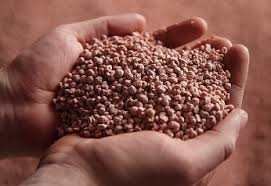
Dec . 21, 2024 06:37 Back to list
potassium humate 100
The Benefits of Potassium Humate A Comprehensive Overview
Potassium humate is a well-known organic compound derived from humic substances, specifically the decomposition of organic material. It has gained considerable attention in the agricultural and horticultural industries due to its numerous benefits. The compound is rich in potassium (K), an essential mineral for plant health, which is released in a readily available form when potassium humate is applied to the soil. This article explores the significance of potassium humate, its benefits, and its practical applications.
Understanding Potassium Humate
Potassium humate is formed through the natural process of humification, where organic matter is broken down by microorganisms over time. The resulting substance is a complex mixture of humic acids, fulvic acids, and other organic compounds, all of which contribute to its beneficial properties. Potassium humate is highly soluble in water and can be utilized in various forms, including powders, granules, and liquid solutions.
Enhancing Soil Quality
One of the most prominent benefits of potassium humate is its ability to improve soil quality. It acts as a natural soil conditioner that enhances soil structure, porosity, and aeration. By increasing the retention of water and nutrients in the soil, potassium humate reduces the need for frequent irrigation and fertilization. This ability to hold moisture can be particularly beneficial in drought-prone areas, as it allows plants to access necessary water even during dry spells.
Promoting Plant Growth
Potassium is a vital nutrient that plays a crucial role in various physiological processes within plants, including photosynthesis, enzyme activation, and overall metabolic function. The presence of potassium humate in the soil ensures a steady supply of potassium, leading to improved leaf development, fruit quality, and flowering. Additionally, it encourages the growth of beneficial microorganisms in the soil, which further supports plant health through enhanced nutrient uptake and disease resistance.
potassium humate 100

Improving Crop Yield and Quality
The use of potassium humate has been linked to increased crop yields and improved quality of agricultural products. Numerous studies have shown that the application of potassium humate can lead to a significant boost in crop production across various crops, including fruits, vegetables, and grains. The enhanced nutrient availability and improved soil health contribute to higher quality produce with better taste, nutritional value, and shelf life.
Environmental Benefits
Beyond its advantages in agriculture, potassium humate also offers environmental benefits. Its ability to reduce the leaching of nutrients from the soil helps protect groundwater quality. Moreover, by promoting soil health and sustaining biodiversity, potassium humate facilitates a more sustainable farming approach, reducing dependency on chemical fertilizers and pesticides.
Versatile Application Methods
Potassium humate can be applied to crops in several ways, including soil application, foliar spray, and through fertigation systems. Each method allows for efficient uptake by plants, depending on specific needs and circumstances. Farmers and gardeners can choose the application method that best suits their practices and crop types, maximizing the benefits of this organic compound.
Conclusion
In summary, potassium humate stands out as a powerful organic compound with a myriad of benefits for soil health, plant growth, and agricultural productivity. Its role as a natural soil conditioner, coupled with its provision of essential potassium, makes it a valuable asset for farmers and gardeners looking to enhance crop yield and quality. As the agricultural sector increasingly seeks sustainable solutions, potassium humate presents an effective and environmentally friendly option. By harnessing the power of potassium humate, we can pave the way for healthier plants, richer soils, and more sustainable farming practices.
-
10 10 10 Fertilizer Organic—Balanced NPK for All Plants
NewsJul.30,2025
-
Premium 10 10 10 Fertilizer Organic for Balanced Plant Growth
NewsJul.29,2025
-
Premium 10 10 10 Fertilizer Organic for Balanced Plant Growth
NewsJul.29,2025
-
Premium 10 10 10 Fertilizer Organic for Balanced Plant Growth
NewsJul.29,2025
-
50 Pound Bags of 13-13-13 Fertilizer for All Plants – Bulk & Organic Options
NewsJul.28,2025
-
High-Efficiency 15-30-15 Granular Fertilizer for Healthy Crops
NewsJul.28,2025
